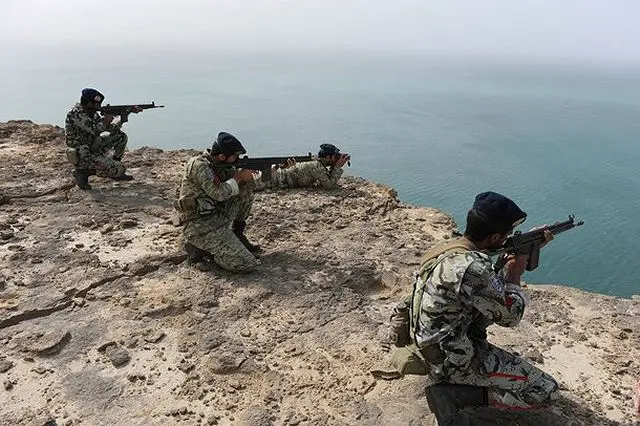| Iran
retaliated by saying that it would block the strategic Strait of Hormuz
where an estimated 40 percent of the world's seaborne oil passes, in response
to the West's oil embargo plans.
"The wargames are aimed at boosting security along the Iranian borders
and are part of the IRGC ground forces' routine drills staged to maintain
and boost combat preparedness of the IRGC units," the Fars news agency
quoted Commander of the IRGC Ground Force Brig. Gen. Mohammad Pakpour.
The exercises, codenamed codenamed "Shohaday-e Vahdat (Martyrs of
Unity)" were officially launched on Saturday, but the active phase
is to begin on Monday.
The Press TV said the exercises will be held near the eastern Iranian
Khaf city with an aim to increase the readiness of IRGC forces under extreme
climatic conditions.
"Shohaday-e Vahdat maneuvers are taking place in Khaf where the temperature
drops 15-21 degrees below zero," Press TV quoted Pakpour as saying.
The United States on Saturday approved sanctions targeting Iran's oil
industry, and the European Union will consider banning Iranian oil imports
during a meeting of EU foreign ministers in late January.
On Friday, Iranian lawmaker Heshmatollah Falahatpisheh said the country's
maneuvers were a response to external threats, particularly those posed
by the U.S. He accused Washington of using the language of threat against
Iran, and said its moves in the region can only be described as hostile.
On Monday, Iran test-fired one surface-to-surface missile and one surface-to-sea
missile in a drill its navy chief said proved Tehran was in control of
the strategic Strait of Hormuz.
Iran announced on Friday it was planning to hold new "massive"
naval exercises near the strategic Strait of Hormuz within the next few
weeks. The drills, codenamed The Great Prophet, may coincide with major
naval exercises that Israel and the United States are planning to hold
in the Persian Gulf in the near future.
|




















